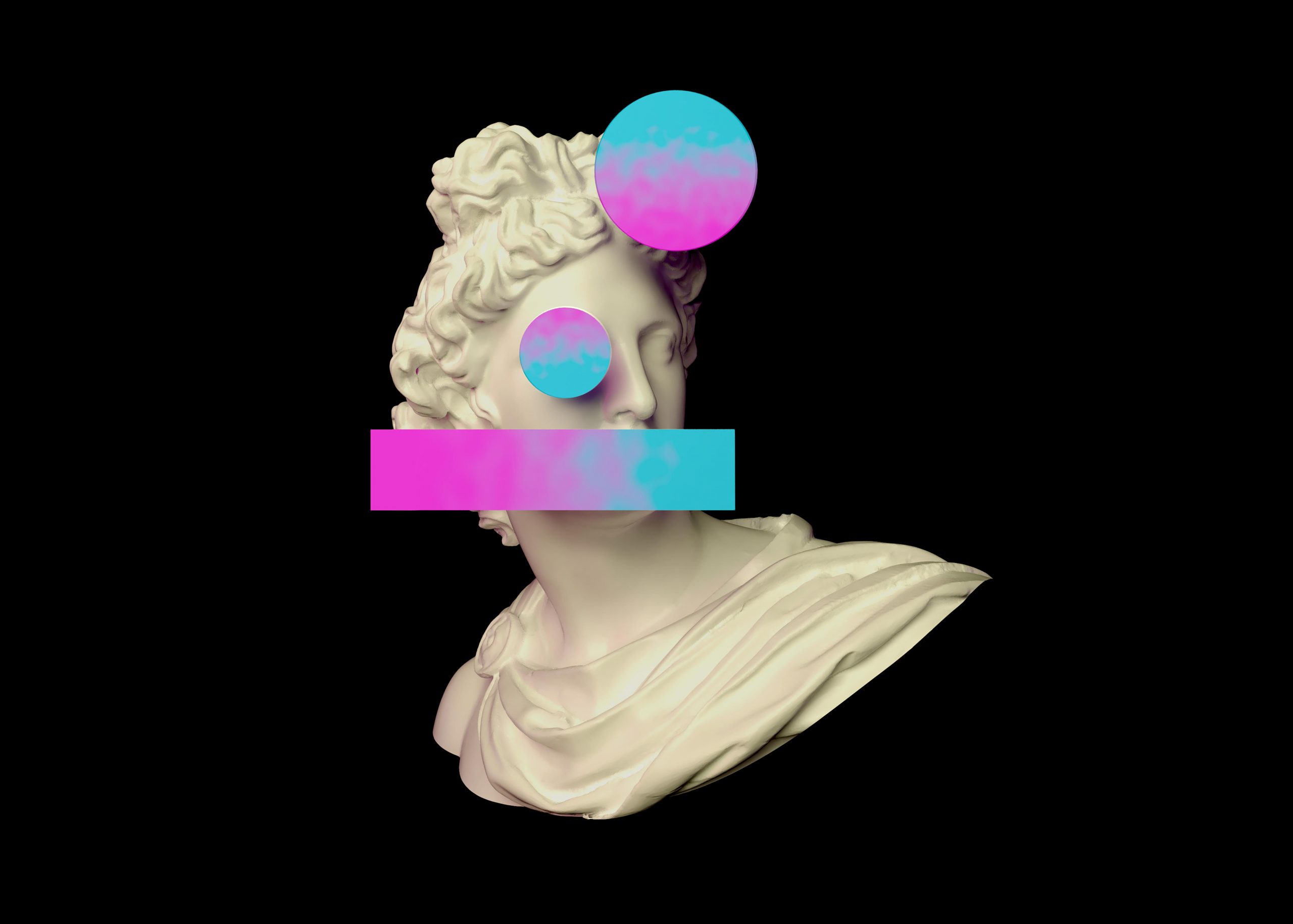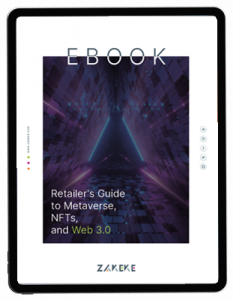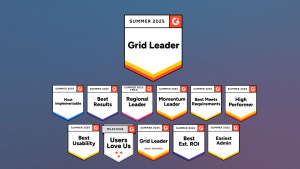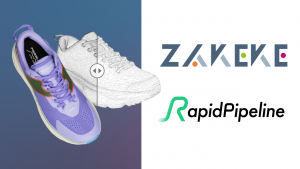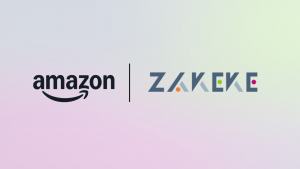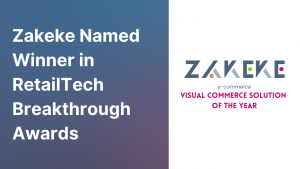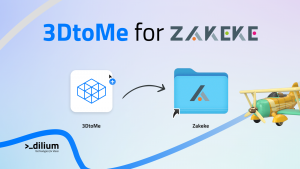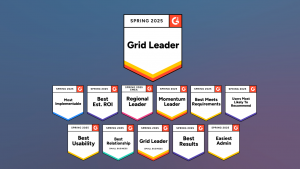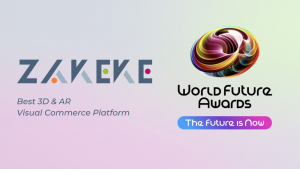Non-Fungible Tokens, or NFTs for short, are like digital certificates of authenticity that prove ownership of digital assets such as artwork, music, and even tweets. Think of it as a modern-day version of a certificate of authenticity for a rare painting.
The unique aspect of NFTs is that they are decentralized, meaning they’re not controlled by a central entity but rather stored on the blockchain. This allows for increased security and transparency, making it harder for fraudsters to steal or manipulate digital content.
NFTs have taken many industries by storm. What started as a niche interest among diehard collectors has quickly turned into an unmissable business opportunity. Companies are jumping at the chance to use NFTs for everything from digital art auctions to exclusive merchandise drops.
This article will explore different NFT use cases in business and provide a better understanding of how companies can get involved.
NFT and business
From musicians releasing limited edition NFTs of their albums to artists selling digital artwork for millions of dollars, the potential for NFTs to transform the way we value and consume art is undeniable. But NFTs are not just limited to the arts – they are also being adopted by other industries.
Let’s find out what are the most popular NFT use cases across industries and how NFTs can boost your business:
- Art
NFT art is revolutionizing the way artists are compensated, providing them with new ways to take ownership of their work and create new projects. By utilizing non-fungible tokens (NFTs) that register artwork on a blockchain, artists can ensure that each piece of their digital asset is uniquely identifiable — granting them more control and opportunity than ever before.
- Music
Music is certainly one of the most famous NFT use cases. This technology has brought forth a new way of owning and selling music, allowing artists to monetize their work in a whole new way. For example, an artist can mint an NFT of their latest album or a rare, unreleased track and sell it to the highest bidder. This not only creates a new revenue stream for the artist, but it also gives fans the opportunity to own a piece of music history in a way that wasn’t possible before.
By creating music NFTs, artists are granted a modern way to tokenise their tunes and albums, allowing them to generate profits from the process. Music NFT marketplaces allow fans to purchase digital tokens that can be traded among other users. This innovative method of monetizing music changes how it is produced and distributed for both creators and listeners alike.
In gaming, players have the authority over their earned (or bought) NFTs, being able to use, trade, or sell them. Not only do these tokens serve as an asset for a gaming collection, but they also preserve their worth. Instead of everyone having access to a special in-game weapon or piece of armour, for example, that NFT would only be available to the one person with the rights to it.
Did you know that also in Fashion & Luxury you can find good NFT use cases? Owning an NFT provides customers of a clothing brand with exclusive access to certain privileges, happenings, fashion shows, and experiences that the business has crafted in both the virtual and the real world.
And more… NFTs are genuinely in their infancy. As the technology continues to evolve, we can expect more use cases for NFTs in business to emerge.
Benefits of NFTs in business
The advantages of using NFTs in business are multiple. For starters, they provide a secure, immutable record on the blockchain that cannot be altered or manipulated. This makes NFTs ideal for industries such as art and fashion, where protecting intellectual property is paramount.
Here are some of the other advantages of using NFTs in business:
Enhancing brand value
By offering exclusive NFTs as a reward for loyalty, businesses can increase their perceived brand value. Connecting to the latest technologies shows the world that your brand is on the cutting edge and willing to invest in new ideas.
Creating scarcity
With NFTs, companies can create limited-edition items and experiences that add to their brand’s overall desirability and exclusivity.
Providing ownership and authenticity
By utilizing NFTs to back up the authenticity of products, businesses can create a secure provenance that can’t be replicated or compromised. This adds an extra layer of security and provides customers with the assurance that what they are buying is genuine.
Generating revenue
With NFTs, businesses can create unique and valuable digital assets that customers can purchase, trade, or even use as collateral for loans. This opens up a whole new world of possibilities for businesses looking to monetise their digital content.
Enabling microtransactions
One of the most significant ways NFTs help businesses is by enabling microtransactions. No longer are customers limited to purchasing a product in one lump sum; instead, they can buy small pieces of it as they go along. This opens up possibilities for businesses that want to offer a subscription model, service, or product sold in increments or even art broken down into smaller, more affordable pieces.
NFT use cases in business
Even though NFT usage is still on the rise, there has been a lot of movement in the NFT space over the last couple of years. Here are some of the best NFT use cases in business:
- NFTs and sports
NBA Top Shot has been a pioneering force among the NFT sports projects since its launch in 2019. As an impressive digital alternative to trading cards, it sells “Moments” – short clips that capture iconic basketball highlights. You can browse and purchase your favourite Moments on the marketplace or take a chance with randomly bundled packs for potential surprises.
These moments are ranked from common to legendary, with values increasing based on the athlete and the historical significance of each. For example, a Lebron James slam dunk sold for over $350,000.
- NFTS and virtual real estate
You can purchase virtual real estate within digital games or environments – it’s just like buying land in the physical world. NFT houses, apartments, and buildings are all available to invest in–some NFTs even have ties to actual properties in the real world.
Brands and businesses often create replicas of their physical locations for use as virtual worlds, too. So you know that your investments will reflect those same values from our three-dimensional realm.
- NFTs and your fans
2021 saw a revolutionary shift in the music industry when 3LAU tokenised and auctioned 33 collectable NFT versions of his album Ultraviolet, which ultimately sold for an astounding $11.7 million. Following this groundbreaking event, prominent artists such as Grimes, Shawn Mendes, The Weeknd, and many more launched their own unique renditions of NFTs.
- NFTS and loyalty programs
Starbucks is perhaps the most well-known to get in on NFTs as part of its loyalty program. The company has launched a new initiative called ‘Starbucks Odyssey‘, which promises customers a unique Web3 experience complete with collectable NFT “stamps” that can be used for exclusive rewards within their digital community.
Successful business NFT case studies
Like any new technology, you have early adopters who are willing to take risks and lead the charge to show others what will or won’t work. Here are a few of the most famous NFT use cases all over the world:
- Coca-Cola
Coca-Cola demonstrated its marketing prowess when it debuted its first NFT initiative in July 2021. Incorporating its mission of showcasing Coke as a connection representation, the company sold off a set of collectables for an impressive $575.883.61 at an online auction – illustrating that this strategy will be effective!
They held their auction on International Friendship Day. To make it even more special, Coca-Cola revealed that along with being the highest bidder at the auction, they were also gifted a retro SMEG refrigerator filled to the brim with icy cold Coke for them and their friends.
- Taco Bell
Taco Bell recently capitalized on the NFT craze by launching 25 taco-themed GIFs via Rarible (an NFT marketplace) to support their Live Más Scholarship. With prices starting at only $1, these assets were quickly snapped up and sold out within 30 minutes – with one even selling for a whopping $3.646!
- Ray-Ban
The renowned designer sunglasses brand wants to become an industry leader in the metaverse. Not only was this company chosen by Meta for their AR glasses collaboration project, but it also recently released its first NFT on OpenSea – a digital piece of art featuring iconic Aviator sunglasses made by 3D motion artist Oliver Latta from Germany. All proceeds benefit the Italian Art Trust.
How to start an NFT business: some interesting tips
Starting an NFT business may sound challenging, but once you understand the ins and outs, you could soon find yourself among the pioneers of this new digital world.
Research and understand the technology
Most people, especially early on, aren’t going to do the research needed to understand how blockchains or NFTs work. This provides an advantage to those who are willing to learn. By understanding NFTs, you’re putting yourself in a small group of people and creating a path for developing your own unique project and digital product.
Develop a clear strategy
After you’ve developed a better understanding, you should begin to develop a clear strategy for how your brand or business will engage with the NFT space. Consider the type of content you’d like to generate, how it will tie into your brand narrative, and how you can market it. Do you want to connect your NFTs to the Metaverse? Sell digital real estate? Use NFTs to promote non-profits? The opportunities are endless.
Find the right NFT platform
Once you have an idea in place, begin researching the most suitable NFT platforms. Explore options such as OpenSea, SuperRare, Rarible, Token Trove and more. Consider factors such as transaction fees, the type of content you plan to create, and the level of support the platform offers.
Build a Community
In order to properly launch and market your NFT business, you must have an audience. Start curating one now by creating a digital presence on social media platforms such as Twitter, Discord, or Telegram. Connect with other artists, brands, creatives, and potential customers in the space that shares similar interests. This will be invaluable when it comes to launching your digital assets.
Focus on the User Experience
As with any business, creating a great User Experience should always be at the forefront of your mind. Make sure to incorporate features that make it easy for users to explore, purchase, and display their NFTs. Ensure that what you’re creating has a market and a desire for your NFTs and deliver every step of the way throughout your NFT project.
In conclusion, NFTs are quickly becoming a powerful tool for businesses and industries of all kinds. From well-known companies such as Coca-Cola, Taco Bell, and Ray Ban to digital artists and content creators worldwide, the potential applications of NFTs are limitless. With the right tools, knowledge, and community, you can soon find yourself riding the wave of success in this dynamic new industry.



